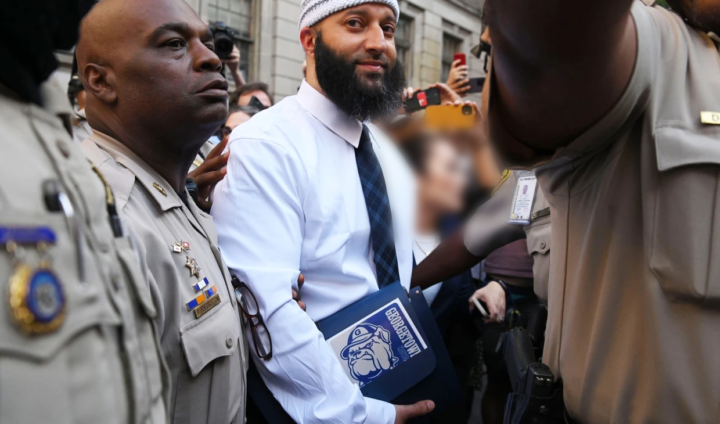Following Adnan Syed’s release from prison Monday, after more than two decades fighting his conviction for the murder of his ex-girlfriend Hae Min Lee, experts and advocates are calling into question the way his race and religion were framed in court during his trial.
Syed’s background as a Muslim from a Pakistani immigrant family not only shaped the trial, they say, but were tools the state used to help convict him.
“It seemed like what the prosecution did is it made an intentional choice to substitute Islamophobia and racial bias for proof,” Mano Raju, San Francisco public defender and a member of the South Asian Bar Association of North America, told NBC News. “The conviction was based in large part on references to race and plays to racism.”
A Maryland circuit court judge vacated Syed’s convictions due to new evidence that could’ve impacted the outcome of the case. Syed, 19 years old at the time, was handed a life sentence after the body of Lee, 18, was found buried in Baltimore’s Leakin Park in 1999. Now 42, Syed, whose case was brought to national attention by family friend and attorney Rabia Chaudry, and made the subject of popular 2014 podcast “Serial,” had his convictions of murder, kidnapping, robbery and false imprisonment vacated.
Prosecutor Becky Feldman denied NBC News’ request for comment. In her arguments in court Monday, she questioned cellphone tower data that was alleged to have placed Syed at the park where Lee’s body was found, one of the most critical pieces of evidence in the initial conviction.
“The state has lost confidence in the integrity of this conviction and believes that it is in the interest of justice and fairness that his convictions be vacated,” she said.

Racist stereotypes in courtroom
During the trial in Baltimore that culminated in his 2000 conviction, prosecutors made hundreds of references to Adnan’s race and religion, introducing him to the jury by saying, “The defendant is of Pakistani background, he’s a Muslim,” though Syed was born and raised in the U.S.
“The evidence didn’t necessarily stack up, but people’s assumptions about the likelihood that he would do something like that played a big role,” Simran Jeet Singh, director of the Aspen Institute’s Religion & Society Program, told NBC News.
Attorneys for the state of Maryland even implied he committed the murder because of his religious beliefs, stating “his honor was besmirched,” a stereotype often weaponized against Muslim men.
“It was a strategy to inflame racial and religious prejudice against a brown Muslim man,” Raju said.
Beliefs about misogyny and the Muslim community could have factored into the case, said Saher Selod, author of “Forever Suspect: Racialized Surveillance of Muslim Americans in the War on Terror” and an associate sociology professor at Simmons University. While she said she’s unable to definitively determine whether it influenced the outcome, she said it’s common for those tropes surrounding immigrant communities to be exploited.
“This is something that has been used to justify colonialism going way back … This notion that men of color, men coming from Asian, South Asian cultures, are inherently misogynistic towards their women, which justifies the intervention that needs to occur,” Selod said. “It constructs women as inherently abused while at the same time constructing men as the abusers. There’s just a long history of that that’s tied to the criminal justice system.”
Raju said he thought the prosecution made sure the jury saw Syed as a foreigner whose race and religion made him more disposed to violence.
As a defense attorney, Raju said he knows how attorneys intentionally pick their courtroom language. The racist dog whistles used in Syed’s trial are something he’s seen many times before: when people of color are charged with a crime, race immediately becomes a factor.
“This is a pattern,” he said. “What the prosecutors try to do is make up for a lack of evidence, and they hope that fear will fill the gap.”







